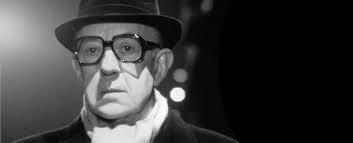
The spy for all spies George Smiley returns September 7, 2017. If you don’t know George Smiley, there is time. All you need to do is read the Karla Trilogy: “Tinker, Tailor, Soldier Spy,” “The Honourable Schoolboy” and “Smiley’s People” plus “The Secret Pilgrim.” That should take care of your summer reading.
If you want to cheat, then you can still find the BBC production of “Tinker, Tailor…” and “The Honourable Schoolboy.” I would not bother with the recent Gary Oldham effort, “Tinker, Tailor …” That is not a knock on Oldham, LeCarre explains it better. LeCarre dedicated “The Secret Pilgrim” to Sir Alec Guinness, that should tell you something. There is a back story.
Sir Alec was chosen to play George Smiley in a made for TV version of “Tinker, Tailor, Soldier, Spy,” produced by the BBC. LeCarre was on the set and watched Sir Alec’s, portrayal of Smiley. Smiley is LeCarre’s creation; he has made appearances in at least three other novels that LeCarre wrote. LeCarre had been living with the character for probably 25 years. LeCarre had a picture of Smiley lodged in his mind’s eye. LeCarre claimed that after seeing Guinness’s portrayal of George Smiley from that point onward, whenever he called up his mental image of Smiley, he saw Alec Guinness. That is why you should make an effort to find the BBC series. George Smiley-to-return-new-John-le-Carre-novel-a-legacy-of-spies
George Smiley, John le Carré’s iconic cold war spymaster, is to return for the first time in 25 years in a new novel by the beloved spy-turned-author.
A Legacy of Spies, due to be published on 7 September, will also see the return of Smiley’s colleagues from the British secret service – or the Circus, as they were known in Le Carré’s original books. The bestselling novels famously drew on the author’s own experience of working for British intelligence in the 1950s and 60s.
In his books, LeCarre created new terms, lamplighter, pavement artists, legend, and burning among others. He also created or revealed techniques “tradecraft” for conducting operations. Most importantly, in Smiley, he created a protagonist with a moral foundation. George Smiley didn’t jet around the world half-bombed on martinis stirred not shaken, screwing anything female that moved, like some secret agents of the time. He was not a fan of the “end justifies the means,” because then the British would be just like the Russians.
As a newly assigned narcotics investigator, in 1990, in a newly formed unit with no institutional memory or identity Smiley’s terms were as good as anything else we had come across. But it was not the terms that we purloined that I carry with me but the morality of George Smiley. We used to say, “Just because you can do something, doesn’t mean you should.”
I was hoping that LeCarre would revisit George Smiley’s WWII exploits. The only reference we have is the comment, “He had a good war.” A British expression for a soldier or spy who performed a difficult task well. I’ll take a dose of George Smiley any way I can get him.